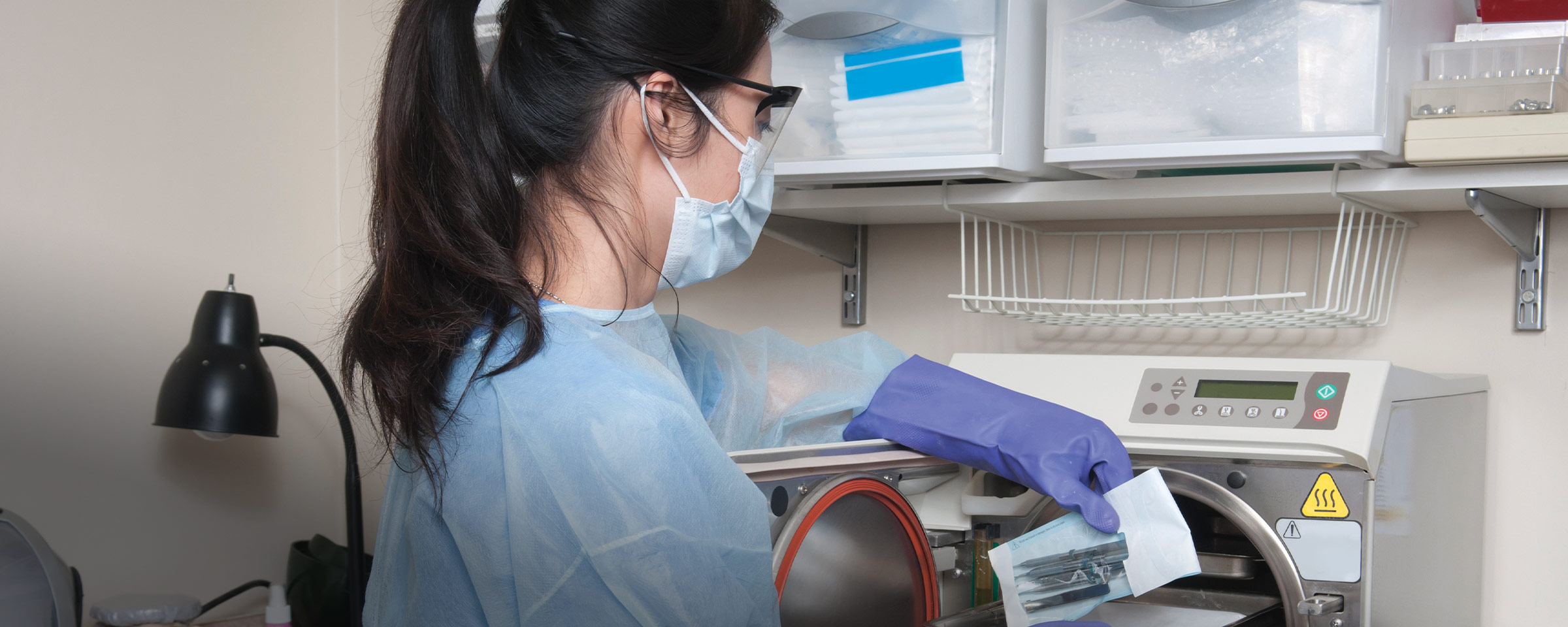Are you considering a career as a dental assistant? If so, it’s essential to understand the responsibilities and duties that come with the role. A dental assistant plays a crucial role in ensuring patients receive quality dental care, and their responsibilities can vary from office to office. In this article, we’ll explore what are the 10 duties of a dental assistant so that you can have a better understanding of what it takes to become a successful dental assistant.
So, let’s get started!
What is a Dental Assistant?
A dental assistant is a key member of a dental team, providing critical support to dentists and dental hygienists.
Think of them as the dental office’s “utility player,” with a diverse range of duties that may include preparing treatment rooms, sterilizing equipment, and taking X-rays.
They also assist with dental procedures, such as handing instruments to the dentist or holding a suction device to remove excess fluids from the patient’s mouth. Beyond these technical tasks, dental assistants also provide emotional support to patients, helping to calm nervous individuals and ease their fears about dental procedures.
What are the 10 duties of a Dental Assistant?
The duties of a dental assistant include:
- Assisting the dentist during procedures: This can include passing instruments, suctioning fluids, and taking X-rays.
- Preparing treatment rooms: Dental assistants are responsible for setting up the treatment area, sterilizing instruments, and ensuring that all necessary materials and equipment are available.
- Taking and developing dental X-rays: Dental assistants must be trained in radiology and be able to take and develop high-quality dental X-rays.
- Providing patient care: This includes preparing patients for treatment, taking vital signs, and monitoring patients during procedures.
- Instructing patients on oral hygiene: Dental assistants may provide patients with information on proper oral hygiene techniques, including brushing, flossing, and rinsing.
- Sterilizing and maintaining dental instruments: Dental assistants are responsible for sterilizing and maintaining dental instruments to ensure that they are safe for patient use.
- Managing patient records: This includes documenting treatments, updating patient charts, and managing patient billing and insurance claims.
- Scheduling appointments: Dental assistants may be responsible for scheduling patient appointments and ensuring that the dental practice runs smoothly.
- Educating patients on dental procedures: Dental assistants may explain dental procedures to patients and answer any questions they may have.
- Performing administrative duties: This can include answering phones, managing inventory, and ordering supplies.
-
 Get the skills towards a career in Dental AssistingThis program helps to prepare students to provide the services of a certified dental assistant as outlined in the BC College of Oral Health Professionals (BCCHOP)* Bylaws under the Health Professions Act of British Columbia.
Get the skills towards a career in Dental AssistingThis program helps to prepare students to provide the services of a certified dental assistant as outlined in the BC College of Oral Health Professionals (BCCHOP)* Bylaws under the Health Professions Act of British Columbia.
How to become a dental Assistant?
- Obtain a high school diploma or equivalent: A high school diploma or GED is usually required to become a dental assistant.
- Complete a dental assisting program: Many dental assisting programs are available at vocational schools, community colleges, and dental schools. These programs can vary in length from several months to two years and can result in a certificate, diploma, or associate degree.
- Gain hands-on experience: In addition to completing a dental assisting program, you may also be able to gain hands-on experience through an internship or on-the-job training.
- Maintain certification: If you choose to obtain certification, you will need to maintain it by completing continuing education courses and renewing your certification periodically.
Dental Assistant Salary
In Canada, the typical dental assistant makes $46,800 a year, or $24 an hour. Most experienced professionals earn up to $55,575 per year, while entry-level roles start at $39,975 annually.
Qualifications of a Dental Assistant
In Canada, the qualifications of dental assistants must include:
- Education: Dental assistants in Canada typically need to complete a recognized dental assisting program, which can range from several months to two years in length, depending on the program. These programs may result in a diploma, certificate, or degree.
- Certification: In Canada, dental assistants can become certified by the National Dental Assisting Examining Board (NDAEB) after completing an accredited dental assisting program. Certification is not always required, but it can improve job prospects and earning potential.
- Registration: Dental assistants may also need to register with the regulatory body in their province or territory. This may involve completing an application, providing proof of education and certification, and paying a registration fee.
- Continuing education: Dental assistants in Canada may need to complete continuing education courses to maintain their certification and registration. This can include courses on infection control, radiography, and other dental assisting topics.
- Language proficiency: In some provinces, dental assistants may need to demonstrate proficiency in English or French, depending on the language of instruction in their dental assisting program.
Conclusion
In conclusion, dental assistants are essential members of the dental team, performing a wide range of clinical and administrative duties that help to ensure the smooth operation of a dental practice and provide patients with quality care.
By completing a dental assisting program or gaining on-the-job training, individuals can become skilled and valued dental assistants, helping to improve the overall oral health of patients.
We are glad that you chose us for learning what are 10 duties of a dental assistant and we hope that this article was of some use to you.



